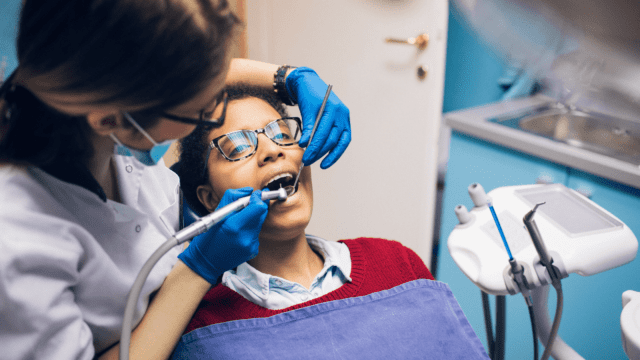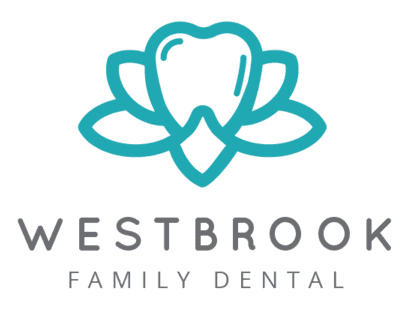Oral health is a critical aspect of our overall well-being that, unfortunately, often gets overlooked. While most of us understand the importance of healthy eating or regular exercise, we might not pay as much attention to the health of our mouths, which can have a profound impact on our quality of life.
A. The Importance of Oral Health
Oral health refers not just to our teeth, but also our gums, tongues, and the entire oral-facial system that allows us to smile, speak, and chew. A healthy mouth can ward off medical disorders, while an unhealthy mouth can increase the risk of serious health problems such as heart attack, stroke, and poorly controlled diabetes.
Issues like tooth decay, gum disease, and tooth loss can lead to pain, self-esteem issues, and difficulty in daily activities like eating, speaking, and smiling. Oral diseases can affect every aspect of life, from personal relationships and self-confidence to school to work. Research has also shown a link between oral health and systemic diseases such as diabetes and cardiovascular diseases.
B. Overview of General Dentistry and Its Role in Oral Health
General dentistry, a cornerstone of dental health care, plays a vital role in maintaining oral health. It focuses on the diagnosis, prevention, study, and treatment of a wide variety of conditions and disorders affecting the teeth, gums, and maxillofacial (associated with the jaw and face) region of the body.
A general dentist is your primary care dental provider responsible for diagnosing and managing overall oral healthcare needs, including gum care, root canals, fillings, crowns, veneers, bridges, preventive education, and more. They also guide patients in maintaining proper oral hygiene, recognizing the early symptoms of dental issues, and providing necessary treatment or referrals to specialists when required.
General dentistry’s preventive approach, centered on regular check-ups and cleanings, helps identify potential problems early on. This proactive stance can prevent minor issues from becoming major oral health problems, saving individuals from unnecessary discomfort, complex procedures, and financial burdens.
By offering a broad range of services necessary for maintaining optimal oral health, general dentistry plays a vital role in leading the charge against oral disease, ensuring our mouths are as healthy as they can be, contributing to our overall health and wellness. As we dive deeper into this topic, we’ll explore how general dentistry can transform your oral health, potentially improving much more than just your smile.
Understanding General Dentistry

General dentistry is a vast field that forms the basis of most dental care. It is inclusive, comprehensive, and an essential part of healthcare. Let’s delve into what it encompasses, its origins, and the common procedures involved.
A. Definition of General Dentistry
General dentistry refers to the primary dental care provided to patients of all ages. It focuses on the overall maintenance of oral hygiene and tooth health. It encompasses a wide range of dental procedures and treatments and is responsible for the prevention, diagnosis, and treatment of a plethora of conditions, disorders, and diseases affecting the teeth, gums, and maxillofacial region.
A general dentist is a primary dental care provider, and often the first point of contact for any dental issues. They ensure your oral health is in its best shape and work towards the prevention and treatment of oral diseases.
B. Brief History and Development of General Dentistry
Dentistry, as a concept, has been around for thousands of years. The earliest evidence of dental procedures dates back to 7000 BC in the Indus Valley Civilization. Ancient Greeks also documented their dental experiences, with Hippocrates and Aristotle writing about dentistry, including gum disease, tooth extraction, and the use of wires to stabilize loose teeth and fractured jaws.
The modern profession of dentistry started to take shape in the 18th century. In 1723, Pierre Fauchard, a French surgeon, often referred to as the ‘Father of Modern Dentistry’, published ‘Le Chirurgien Dentiste’, a comprehensive book about oral anatomy and function, methods for tooth replacement, and basic oral hygiene.
Over the years, dentistry has evolved significantly with advancements in technology and research. The 20th century saw an explosion of new materials, techniques, and understanding of oral health. General dentistry has transformed from a pain-focused, extraction-dominated profession to a prevention-focused, comprehensive health care service.
C. Explanation of Common General Dentistry Procedures
Here are some common procedures that fall under general dentistry:
- Cleanings: This is perhaps the most routine of all general dental procedures. Regular cleanings are essential for maintaining oral health. A dental hygienist or dentist will remove plaque and tartar build-up that can lead to cavities, gum disease, and other oral issues.
- Dental Fillings: Fillings are used to treat tooth decay (also known as cavities). The dentist removes the decayed tooth material, cleans the affected area, and then fills the cavity with a filling material, which could be amalgam, resin, porcelain, or gold.
- Extractions: An extraction refers to the removal of a tooth. Extractions are performed for a wide variety of reasons, including tooth decay that has destroyed enough tooth structure to render the tooth non-restorable. Extractions of impacted or problematic wisdom teeth are also routinely performed.
- Root Canal Treatment: This procedure is performed when the nerve of a tooth becomes infected or the pulp becomes damaged. During a root canal procedure, the nerve and pulp are removed, and the inside of the tooth is cleaned and sealed.
- Dental Crowns: These are used to restore a tooth’s shape, size, and strength, and improve its appearance. The crowns, when cemented into place, fully encase the entire visible portion of a tooth that lies at and above the gum line.
- Gum Disease Treatment: General dentists can diagnose and treat the early stages of gum disease (gingivitis). More advanced cases (periodontitis) may be referred to a specialist, a periodontist.
The aforementioned procedures are just a glimpse into the broad array of treatments offered under the umbrella of general
The Importance of Regular Dental Check-ups

Regular dental check-ups play an essential role in maintaining good oral health and a bright, healthy smile. However, their benefits go beyond that. They are a cornerstone of preventive care in dentistry and can help detect early signs of oral diseases, providing opportunities for timely intervention.
A. Importance of Preventive Care in General Dentistry
Preventive care is a foundational principle in general dentistry. Its goal is to prevent the onset of oral health issues, or to halt their progress, through regular check-ups, cleanings, and patient education about good oral hygiene practices.
Preventive dental care can save patients from the discomfort and high costs associated with serious dental procedures that may become necessary when problems are left untreated. Moreover, it can help avoid the consequences of poor oral health, which can range from tooth loss and gum disease to systemic conditions like cardiovascular diseases.
Regular dental visits allow for comprehensive oral examinations and professional cleanings that remove plaque and tartar build-up, which are not entirely cleared by brushing and flossing alone.
B. How Regular Check-ups Can Detect Early Signs of Dental Issues
Dental check-ups typically involve a thorough examination of your teeth, gums, mouth, and sometimes, a screening for oral cancer. This comprehensive evaluation can identify potential issues that may not be visible or even cause pain until they’ve progressed to a more severe stage.
For instance, early-stage gum disease (gingivitis) is often painless and might go unnoticed without a professional evaluation. Similarly, tooth decay can start in hard-to-see areas between teeth or in tiny cracks. Regular dental check-ups allow for the early detection of these issues, which can then be treated more effectively and less invasively.
Additionally, X-rays taken during check-ups can reveal problems hidden from the naked eye, such as decay between teeth or below existing fillings, bone infections, gum disease, abscesses or cysts, developmental abnormalities, and certain types of tumors.
C. The Impact of Neglecting Dental Check-ups
Neglecting dental check-ups can have serious consequences. Without the advantage of professional cleanings and the keen eye of a dentist, oral health problems can worsen over time.
Untreated tooth decay can lead to painful toothaches, infections, and the eventual need for root canals or extractions. Similarly, gum disease can progress from gingivitis to periodontitis, which can cause tooth loss and has been linked with systemic health problems like heart disease and diabetes.
Skipping dental check-ups can also lead to a higher risk of oral cancer going undetected.
In sum, while it might be tempting to skip dental appointments due to fear, perceived lack of time, or cost, the long-term health and financial costs of doing so can be much greater. Regular dental check-ups are an investment in your overall health and can help ensure a lifetime of healthy smiles.
Additional Benefits of General Dentistry

While the most apparent benefits of general dentistry lie within the realm of oral health, its impact extends far beyond your mouth. It contributes significantly to overall health, helps in the early detection of certain systemic diseases, and can greatly enhance one’s confidence and self-esteem.
A. How General Dentistry Can Impact Overall Health
Oral health is far more than just the absence of cavities and gum disease. It’s an integral part of your overall health and well-being. Your mouth is a gateway to your body, and problems here can signal or lead to severe health issues elsewhere.
Through regular dental exams, general dentistry plays a vital role in maintaining not just oral health, but overall health too. The early detection and treatment of oral health problems can help prevent complications that could affect overall health. For instance, untreated oral infections can enter the bloodstream and lead to conditions like endocarditis (an infection of the heart’s inner lining).
B. Connection between Oral Health and Systemic Diseases
Numerous studies suggest a strong correlation between oral health and systemic diseases.
- Heart Disease: Research indicates that heart disease, clogged arteries, and stroke might be linked to oral health, particularly the inflammation and infections caused by bacteria in gum disease.
- Diabetes: Diabetic individuals are more likely to develop periodontal (gum) disease, which in turn can make diabetes harder to control. Regular dental care can aid in managing this complex relationship.
- Pregnancy Complications: Hormonal changes during pregnancy can increase the risk of oral health issues. Some research suggests a link between gum disease in pregnant women and premature birth with low birth weight.
General dentistry, through its comprehensive approach to oral health, can aid in the early detection of these issues and contribute to their prevention and management.
C. Effect of Good Oral Health on Confidence and Self-esteem
Lastly, the importance of a healthy, beautiful smile should not be overlooked. It’s one of the first things people notice about you and can significantly impact first impressions.
Missing, discolored, or damaged teeth can affect your ability to speak clearly or chew properly, making social and professional situations uncomfortable. This can lead to reduced self-confidence and lower self-esteem.
General dentistry provides preventative and corrective treatments, such as teeth whitening, crowns, bridges, implants, and veneers, that can restore or enhance the aesthetics of your smile. By helping you maintain a healthy and attractive smile, general dentistry can play a pivotal role in boosting your confidence and self-esteem.
In summary, general dentistry is not just about maintaining oral health. It’s a crucial component of overall well-being, helps detect systemic health issues, and has a significant role in enhancing self-esteem, underlining its role in our lives as truly holistic care.
Conclusion
Oral health is not an isolated facet of our well-being, but rather a critical indicator of our overall health status. Its significance is frequently underestimated and overlooked, particularly when compared to other health concerns like diet and physical activity. This discrepancy can inadvertently affect our quality of life, given the central role that oral health plays in our day-to-day functions. It governs everything from essential tasks like eating and speaking to our social interactions, which are often centered around our smiles.
Enter general dentistry, the unsung hero of healthcare, quietly championing the cause of oral health. It’s a comprehensive field, intricately connected with every facet of health, extending its reach beyond just teeth and gums. It encapsulates the diagnosis, prevention, and treatment of a broad array of conditions and disorders not just limited to the mouth but also involving the maxillofacial region—the interconnected structure of our jaw and face.
Through an understanding of our mouth’s ecosystem, general dentistry provides preventive and therapeutic health care, ensuring the detection of potential issues before they escalate. It encourages proactive care, emphasizing the importance of regular check-ups, a fundamental practice that ensures the early detection of oral health problems.
In essence, general dentistry stands as a vital pillar of oral health and, by extension, our overall well-being. It prompts us to recognize the importance of maintaining a healthy mouth, encouraging us to pay as much attention to our oral health as we do to our physical health. After all, a healthy mouth is a vital component of a healthy body, and general dentistry is key to ensuring we maintain it.
So, let’s take a moment to appreciate our oral health and the field of general dentistry for the integral roles they play in our lives. They serve as critical reminders that our health is a multi-faceted entity, and every aspect, including our oral health, deserves equal attention and care. Let us pledge to maintain and enhance our oral health, thereby taking a significant step towards improving our overall well-being.
Maintaining a healthy smile isn’t just about brushing and flossing at home. It requires professional help to catch any potential issues and provide comprehensive care. Therefore, the next step to ensuring your oral health is in the best possible state is simple.
We encourage you to schedule your next dental appointment with Westbrook Family Dental. Our team of skilled and dedicated professionals is committed to providing the highest quality of general dentistry services in a comfortable and patient-friendly environment. Whether it’s your routine check-up, a specific concern, or you’re interested in improving your smile, we’re here to help and guide you every step of the way. Remember, preventative care is the best way to maintain oral health and general well-being. So, don’t wait until a problem arises; reach out to us and let’s embark on the journey towards improved oral health together.
FAQ

What is general dentistry?
General dentistry involves the prevention, diagnosis, and treatment of a wide variety of conditions, disorders, and diseases affecting the teeth, gums, and the maxillofacial (jaw and face) region. It focuses on maintaining oral health and hygiene, ranging from regular check-ups and cleanings to more complex procedures like root canal therapy or dental implants.
How often should I visit a general dentist?
The Australian Dental Association recommends that you visit your general dentist at least once or twice a year for a check-up and professional cleaning, although this may vary depending on your individual oral health needs. Your dentist will be able to advise you on the best frequency for your visits.
What is the role of a general dentist in oral healthcare?
General dentists serve as primary care providers for patients of all ages. They diagnose and treat oral health issues, perform preventive services like cleanings and exams, and provide education on proper oral hygiene practices. They also coordinate services with dental specialists when necessary.
What procedures does a general dentist perform?
General dentists perform a broad range of procedures, including regular examinations, professional teeth cleanings, fillings, extractions, root canal therapy, placement and repair of dental crowns and bridges, teeth whitening, oral cancer screenings, and patient education on oral health.
What kind of education and training does a general dentist have?
In Australia, becoming a general dentist requires a Bachelor’s degree in Dental Surgery or Dental Science, followed by registration with the Dental Board of Australia. Some dentists may also choose to pursue further specialisation in various areas of dentistry.
Why is it important to have regular dental check-ups?
Regular dental check-ups are essential for maintaining good oral health. They allow your dentist to detect early signs of tooth decay, gum disease, and other oral health issues before they become more serious and harder to treat. Check-ups also include professional cleaning, which can remove plaque and tartar build-up that regular brushing and flossing can’t eliminate.
What is the connection between oral health and overall health?
Numerous studies have shown a link between oral health and overall health. Poor oral health can increase the risk of conditions such as heart disease, stroke, and diabetes. Regular dental check-ups and good oral hygiene can play a role in preventing these conditions.
Is general dentistry the same as family dentistry?
In many ways, yes. Both general and family dentists provide comprehensive dental care. The main difference is that a family dentist specialises in dental procedures for all age groups, while a general dentist may focus on adults. But in practice, many general dentists see patients of all ages.
Don’t wait to take the first step towards optimal oral health. Contact us today to Book Your Appointment and let us guide you on the path to a healthy, radiant smile that you can wear with confidence. Your journey to improved oral health begins with one simple call. We look forward to welcoming you to our dental family!



